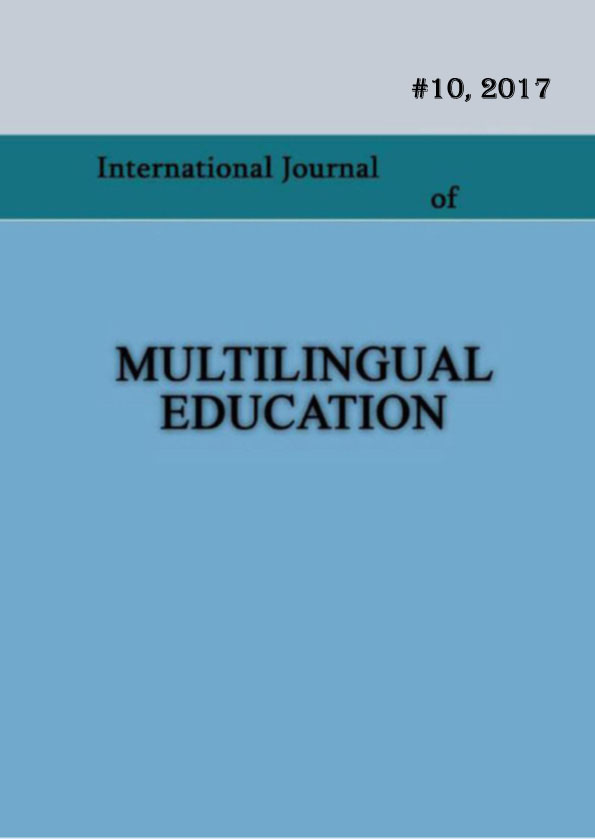TBL (Task-Based Learning) approach and multilingual environment
Keywords:
Task. Method. Phrasal verbsAbstract
For the last few years multilingual education has become very popular in Georgia. Multilingual classes consisting of Georgian and Azeri or Armenian, or both students have become common at Tbilisi State University. The paper aims at studying the emerged problems related to this issue as teaching English in multilingual classes poses challenges to the teaching approaches, strategies, methods and procedures applied in the multilingual environment. The solution to this problem requires from a certain teacher to find new approaches or adjust the existing well tried methods to teaching English to the students with multilingual backgrounds.
The paper deals with the problem of teaching English in a multilingual classroom. The main focus is made on the application of the TBL (Task Based Learning) method in teaching vocabulary, namely, phrasal verbs compared to the other traditional approaches, in particular, PPP (Presentation, Practice, Production). Analyzing the opportunities of the TBL approach the presented paper highlights the advantages as well as the anticipated drawbacks. The ways of the elimination of these downsides are outlined, as well. Taking into consideration the obstacles in the process of the introduction of the material, then its comprehension and acquisition by the students, the paper attempts to single out the benefits of the TBL approach in multilingual groups. The results of the experiment conducted in the target multilingual groups of ESP students, level B1, has revealed the priority of the TBL versus PPP approaches.
References
Harmer, 2006 - J. Harmer, The practice of English Language Teaching, Harlow: Longman, 3rd.ed. 2006.
Krulatz & Abney, 2015 - A. Krulatz, S. Abney (2015) Nordic Journal of Modern Language Methodology, Fostering multilingual competence in the EFL classroom
Spratt, Pulverness, Williams, 2012 - The TKT (Teaching Knowledge Test) Course, Mary Spratt, Alan Pulverness, Melanie Williams, Cambridge University Press, 2012.
Willis, 1996 - J. Willis, A framework for Task- Based learning, Oxford: Longman. 1996.
Published
How to Cite
Issue
Section
License
Copyright (c) 2017 Tsisana Giguashvili

This work is licensed under a Creative Commons Attribution-NonCommercial 4.0 International License.
Copyright (c) - Authors who publish with this journal agree to the following terms: Authors retain copyright and grant the journal the right of first publication with the work simultaneously licensed under a Creative Commons Attribution-Noncommercial 4.0 International License, which allows others to share the work with an acknowledgement of the work's authorship and initial publication in this journal. Authors are permitted and encouraged to post their work online (e.g., in institutional repositories or on their personal website) prior to and during the submission process, as it can lead to productive exchanges, as well as earlier and greater citation of published work (see The Effect of Open Access). Authors may enter into separate, additional contractual arrangements for the non-exclusive distribution of the journal's published version of the work (e.g., post it to a repository or publish it in a book), with an acknowledgement of its initial publication in this journal.

